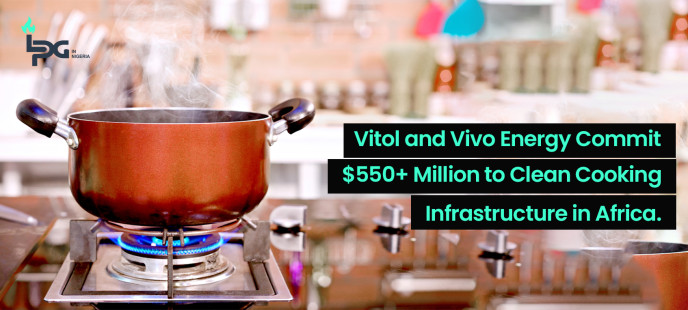- 3419
- 0
Sharing Ideas and Updates on LPG in Nigeria and related information to enable effective collaboration within the LPG Value Chain
Historic Financial Commitment At The IEA Summit On Clean Cooking In Africa

On May 14th, a groundbreaking financial commitment of $2.2 billion was announced at the first-ever high-level Summit on Clean Cooking in Africa. Co-chaired by the International Energy Agency (IEA), the governments of Tanzania and Norway, and the African Development Bank, this summit marked a significant milestone in addressing one of the continent's most pressing issues.
The Urgent Need for Clean Cooking Solutions
In Africa, over one billion people still rely on open fires and traditional stoves, using wood, charcoal, and other polluting fuels for cooking. This practice has severe health implications, environmental degradation, and exacerbates gender inequality, disproportionately affecting women and children. The summit in Paris brought together nearly 60 countries, along with companies and development institutions, to tackle this deep-seated inequality.
Unprecedented Gathering and Commitment
The summit was attended by over 1,000 delegates, making it the largest gathering dedicated to clean cooking access. This substantial financial pledge has the potential to transform 2024 into a pivotal year for clean cooking initiatives, an issue that has been neglected for far too long.
Ensuring Momentum: The Double-Lock System
Following the summit, the IEA introduced a “double-lock system” to maintain momentum in the coming months and years. This system focuses on two key areas:
Effective Tracking and Monitoring: Ensuring pledges and commitments are fulfilled, with careful monitoring to guarantee timely spending and delivery to those in need.
Engaging New Partners: Continuing to convene and engage more partners, generating new funds to meet the required $4 billion annually in capital investments until 2030.
High-Level Attendees
Prominent leaders at the summit included IEA Executive Director Fatih Birol, President of Sierra Leone Julius Maada Bio, President of Tanzania Samia Suluhu Hassan, President of Togo Faure Gnassingbé, Norwegian Prime Minister Jonas Gahr Støre, Executive Vice President of the European Commission Maroš Šefčovič, and President of the African Development Bank Group Akinwumi A. Adesina.
Broader Commitment to Equitable Energy Transitions
This summit is part of the IEA’s broader commitment to inclusive and equitable clean energy transitions. In late April, the IEA convened the Global Summit on People-Centred Energy Transitions. This summit brought together government representatives from 35 countries and nearly 30 trade union leaders representing approximately 200 million workers. The discussions focused on addressing the social and economic challenges essential for achieving fair and just energy transitions.
Future Initiatives
At the April summit, IEA Executive Director Dr. Fatih Birol announced plans to hold a new meeting of the independent Global Commission on People-Centred Clean Energy Transitions. This meeting aims to "Design for Fairness" and develop actionable policy recommendations for energy and climate ministers to fully realize the benefits of clean energy transitions, especially for vulnerable communities.
Impact on Global Processes
The outcomes of these discussions will directly contribute to the G20 Presidency of Brazil and other international and multilateral processes, including United Nations climate change conferences. The commitment and collaboration demonstrated at these summits underscore the global determination to achieve inclusive, equitable, and sustainable energy transitions.
Nigeria’s Role in This
The $2.2 billion commitment from the Summit on Clean Cooking in Africa could have a profound impact on Nigeria, where millions still rely on traditional and polluting cooking methods. This financial boost can catalyze the adoption of clean cooking technologies, significantly improving public health by reducing respiratory illnesses caused by indoor air pollution. It can also mitigate environmental degradation from deforestation and charcoal use. For Nigeria, a country with a burgeoning population and substantial energy challenges, this initiative represents an opportunity to enhance energy security and sustainability.
Moreover, the initiative aligns with Nigeria's broader energy transition goals. The government's efforts to increase access to modern energy services could gain momentum with the support of this international commitment. Implementing clean cooking solutions can empower women and children, who spend a considerable amount of time collecting fuel and cooking. This not only improves their health and quality of life but also frees up time for education and economic activities. If effectively leveraged, this funding could position Nigeria as a leader in clean energy adoption in West Africa, demonstrating the viability of large-scale transitions to sustainable energy practices.
We at LPG in Nigeria find the $2.2 billion commitment at the Summit on Clean Cooking in Africa represents a historic step towards addressing a critical issue. With continued efforts and international collaboration, there is hope for significant progress in providing clean cooking solutions and promoting equitable energy transitions across the globe.
















0 Comment.